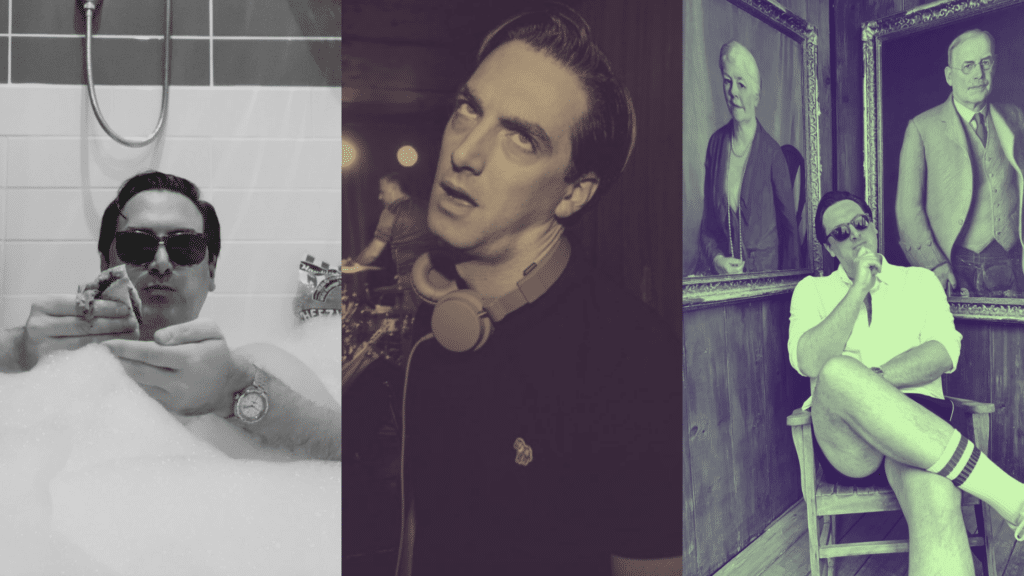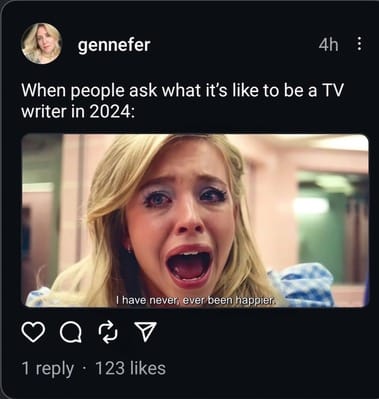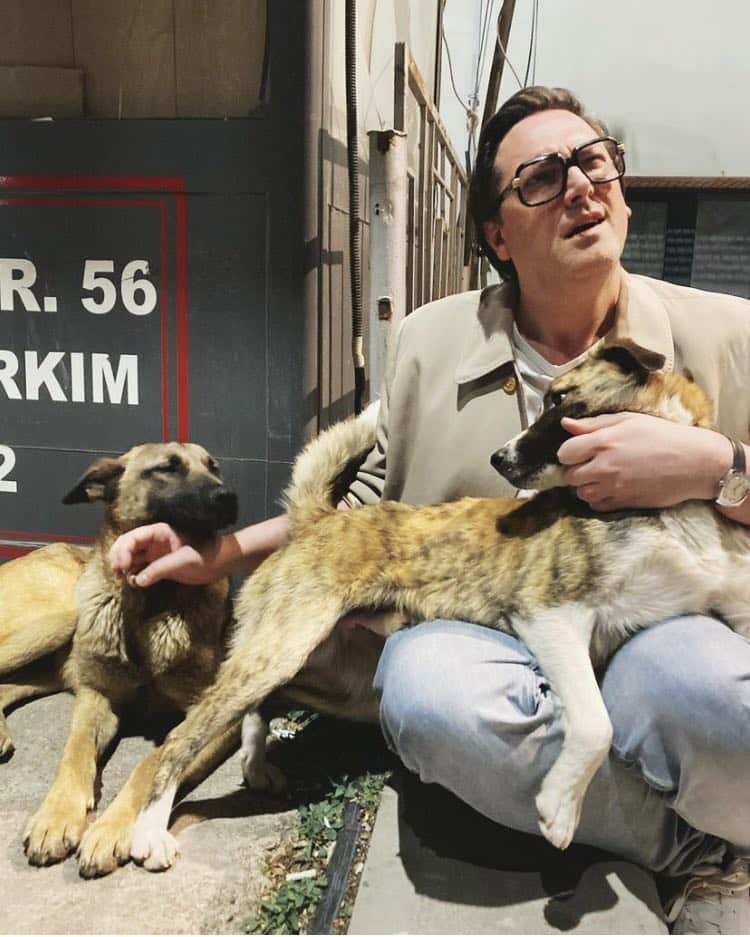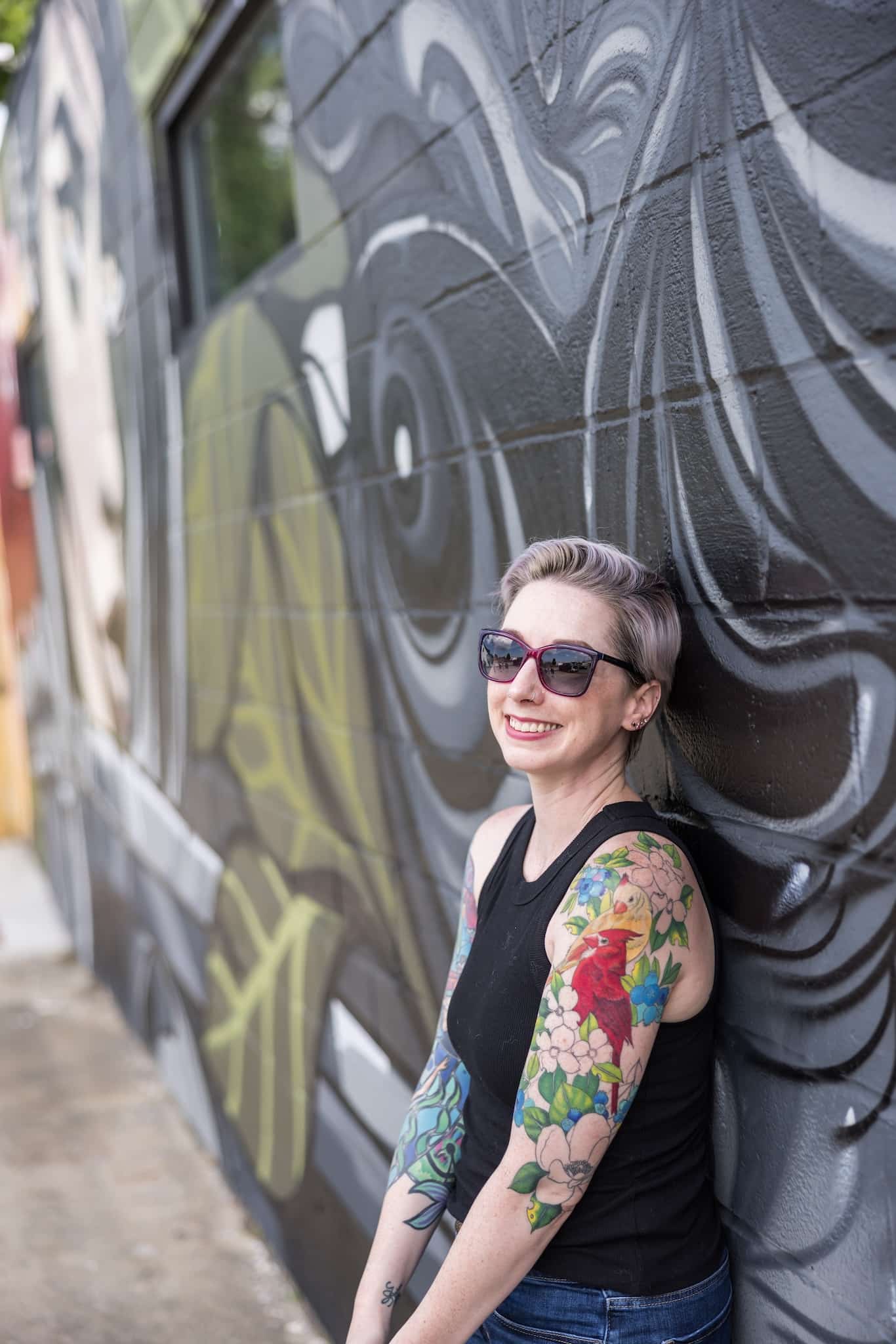
If you look up Trevor Risk on IMDB, you’ll quickly find his writing credits for Letterkenny and Shoresy alongside a brief bio mentioning his contributions to the shows’ music. But there’s so much more to his journey, and we wanted to dig deeper into how he transitioned from the music industry to television writing.
Before we dove into the ‘real’ questions, Trevor and I shared a few laughs over our mutual history in the music industry. Both of us started with a deep love for music and ambition to succeed, but it was a path that ultimately led to very different creative avenues. Yet, somehow, those paths converged, bringing us together for this insightful (and, honestly, hilarious) discussion about his journey into television writing.
I hope you enjoy it as much as I did!
Let’s start by pretending I know NOTHING. I have read zero spoilers. I’ll ask three SUPER simple questions to just sort of get a feel for the better ones! When did you start writing?
I guess technically I started writing when I was a kid, around ten years old. I used to make up comedic stories on an old 286 computer with a monochrome screen, using WordPerfect. There was a cardboard sheet you could put on the keyboard to show you all the DOS shortcuts for formatting. I’d put the stories on a floppy disk and print them at school. As a teenager, I had many incredible English teachers who encouraged me to read and write, My eighth grade teacher used to make me write him a one page “plan” about what I did wrong in class that day (I was known to act out), and on the final day of school, he read all the plans from the entire year and class. Almost all of them were mine, and they got huge laughs. In my twenties I was an editor of a nationally printed arts & culture glossy and freelanced for publications like Vice, Huffington Post, and other outlets. I wrote for a comedy-forward website about American football that got me a lot of experience on how to craft a joke.
What made you want to get INTO ‘the business’ (as the kids say)?
Does the music business tanking count as a reason? I worked in literally every job in that industry, from recording artist to label stooge. As more and more middlemen skimmed money from the business to keep themselves afloat, I realized there was a much lower ceiling in the business than ever before, and I looked to pivot. I’ve always loved television, and was that classic latchkey kid like Bill in Freaks and Geeks who would record Conan O’Brien on an old VCR at night and watch it after school. I memorized classic bits by people like Emo Phillips and Dave Attell. So when I got the chance to write comedy for television, I was thrilled.
What are your current projects?
I wrote many episodes for the series Letterkenny, and I currently write on the spinoff Shoresy. I’m also developing other shows that may or may not be greenlit or sundowned at any point. The business is changing constantly because of who is in charge of the platforms these days, and they haven’t figured out the best way to make the current tech profitable or decide who best to run it. So you see a lot of turnover and a lot of different approaches to how to make television work the best for these equity firms that now run everything.
You mentioned you moved from the music industry into writing comedy for television – how did you make that transition?
I feel like I have an answer that is quite common in most creative industries: I was given a chance by someone who was willing to risk taking a chance on me. Music and television/movies both function in a similar way when it comes to breaking into it. You can’t just cold email people. You need to have someone suggest you to someone in power. Record labels (the few that still exist) don’t sign artists who come to them. They sign artists who are suggested to them by several people. The same goes with television. I had someone vouch for me and give me a shot with TV writing and I did well enough to continue in the industry for the past several years.
Ready to turn your ideas into an amazing script? Sign up for Celtx today!
What would you say your biggest challenges have been writing for television? I’ve seen a lot of memes lately depicting the general feeling from TV writers right now as (insert Sydney Sweeney’s screaming face here),
Do you think that’s a widespread feeling?
What’s happening that perhaps aspiring tv writers can look out for if they’re trying to get into the business right now?

The industry doesn’t have creatives on the business side anymore. I find this to be ironic considering how a studio will make a limited series like The Offer, which is about how Chinatown or The Godfather would have never been made if it weren’t for the vision of retired actors like Robert Evans working for the studio, and then the studios end up just not following the lesson in literally their own programming. Private equity firms run risk management playbooks with television and movies now, rather than having faith in someone who has been there before. And you have to deal with people who have no points of reference for television. One of The Simpsons writers got on Twitter a few months back talking about a scene they wrote years and years ago about execs insisting on a “proactive paradigm” and hoping the satirization would change things, and we all lamented that it just has gotten worse. Also, we all throw in “proactive paradigm” as much as we can in these meetings because nobody even gets the reference. That’s how disconnected to culture they are.
Since you’ve been writing since childhood and have a robust (for lack of a better term) background in music – growing up, what did you think Adult Trevor would be doing? Did you always dream of being in entertainment or did you want to be a fireman or a doctor?
I think the kid inside me just wanted to have enough money to buy rap cassettes when he grew up. I’m an older millennial with a Gen X brother who influenced me on most everything, so I kind of adopted the “Meh. Jobs are dumb anyway,” approach to my future. I think legitimately the closest I got to planning a future career was when I said “I want to do something in computers” out loud a few times. I guess technically we all do that now, so I wasn’t inaccurate.
How about future goals? Would you ever want to get into movies, or a different genre (dreams of writing the next great American novel? Adapting a fantasy novel into the next epic movie series? Broadway?)
I would love to reboot Hogan’s Heroes. I think it’s a great time to make fun of Nazis again, and I’d do what that show did and hire a bunch of hysterical Jewish actors to play the Nazis and play them as idiots, while throwing in some anachronistic jokes about the current day, with the show still set in a WWII POW camp. I’d also love to reboot Red Shoe Diaries but the premise is that David Duchovny’s character is now hysterically in a sexless marriage and the old TV trope of “Oh we have decades of back order mail to give you because we lost it” happens and he gets all the horny letters from the 90s he stopped getting back then. He can go up to the attic and read them, Neverending Story-style, and the vignettes can all be acted out by great cameos and still set and styled in the 90s. I’m sure that’s not way too niche and everybody would definitely love it and have no problems with it.
If you could give yourself advice, back from when you were just starting out, what would it be?
“Stop bringing up Red Shoe Diaries in general meetings.”
How did you get involved with Letterkenny? I’d love to know the backstory there and what you’ve learned from the experience now that Letterkenny‘s run has completed and Shoresy is still going.
I had known the creator for many years, and he did this great thing where he placed unsigned bands’ recordings as the music for the first couple seasons. Some of my songs were used, and we would also riff on some jokes occasionally. One day he just sent me a text saying “Welcome to the writers room.” Still feels kind of surreal.
I know you’re working on a few projects right now – what are you excited about? What’s coming up for you?
I really love building something from scratch with people, even if it doesn’t get greenlit. Collaboration is fun for me. I like having breakthrough moments and then having to retcon those solutions into earlier decisions. I also love when I am involved in a very serious conversation about something comedic and absurd. Like “Okay, but does ‘sphincter’ sound funnier than ‘anus’ in this joke?” “Well, it depends if you use the qualifier ‘colossal’, because ‘colossal anus’ is funnier than ‘colossal sphincter’.” You gotta take a second and realize how funny the situation is that you’re being so serious about something so unserious.
I think this is the question we all want answered: what was it like doing an AMA on Reddit. Was it one of those “you know you’ve made it” moments in your career?
I really like interacting with fans, although I realize that being a writer, nobody approaches me on the street for selfies. I can understand actors not always being up for it, but for me, I just get to do interviews like this or the Reddit AMA, and it’s fantastic. I always used to say that cult status is the ideal situation between fame and anonymity. I’m sure Robyn Hitchcock can go to the mall and have an Orange Julius and if anyone does approach him, it’s just polite praise. Whereas someone truly A-list would only get people being sycophantic or punishingly cruel. I think I have the best job in this business because the only time I get to talk with strangers, it’s a very normal interaction and I love it. Although when I was DJing last week, a drunk woman came up to me and said “I just heard from someone at the bar that you write for Corner Gas!” And that was really funny.

FAVORITE show on television right now? What’s your comfort-watch show (the one you can and will rewatch until the end of time)?
I don’t know if other writers do this (although I have my suspicions) but I’m always watching a lot of stuff from the past. I think there’s so much to learn about where comedy came from. Kids In The Hall is my favourite show of all time, and I can watch those sketches at just about any point in my life and find joy. I think I have a bit of that older brother Gen X contrarian thing in me I mentioned above, where I have a hard time liking the wildly popular music or television of the current day. My favourite shows of this century are The Knick, Red Oaks, Ash Vs. Evil Dead, Fargo, and The Venture Bros. But if you ask me what I watched the night previous, usually it’s some combination of Peter Gunn, Newsradio, WKRP in Cincinnati, The Love Boat, Bewitched, Newhart, The Odd Couple, Three’s Company, The Dick Van Dyke Show, or Parker Lewis Can’t Lose.
As a DJ, what is one song you WISH people would just… stop requesting?
I don’t play in Vancouver anymore, so I don’t get many requests these days. The cities I DJ in now don’t really have the type of crowd to have the level of self importance it takes to enter a party of hundreds of people and demand the music be changed to exactly and only their list of demands. Also, if you have friends who bark requests at DJs, those people are usually also the type to heckle comics. It’s imperative that we stop being friends with these people. It’s a disservice to bring them out of their homes and into public spaces. Best to leave them at home to catch up on the latest British baking shows. I’ve only ever played two weddings, and I will never do that again. You’ve got attendees like a confirmed bachelor-type uncle who wants to hear Dire Straits, and some suburban seventeen year old who demands Drake, and both are yelling at you. What’s even the median between those artists? Ben E. King? There aren’t enough James Brown songs to appease those crowds, and Mr. Dynamite’s got like a hundred albums. Best request I ever got was from this twenty something Vietnamese guy who came up to my booth in a very glitzy, bottle service nightclub and earnestly asked me what soup was on special that night. It was about one thirty in the morning.
The question we ask at the ‘end’ of every interview: what is one scriptwriting or production lesson you’ve learned over the years to help get a script finished, that you wish you knew before – it can be as general or specific as you’d like – anything come to mind?
I learned this working in music, and I apply it to TV as well: don’t admire your passes. Pardon the sports analogy, but if you’re playing hockey and you pass the puck and you just sit there and admire it, you’re going to get trolley tracked and you’re going to lose. So I always have something else I’m working on as soon as I finish the last script. The thing is, the actors, editors, directors, and everyone else are going to tinker with your script, so if you sit there waiting to see what they do with it, you’re going to start being precious about your work, and that’s frustrating for both yourself and the people you work with. You did your part in the process, you handed it off, and now other people have to touch it and make it come alive. It’s not going to be how you first imagined it, and that’s the whole point.
We’re excited to see what’s next for Trevor, but while we wait, you can stream both Letterkenny and Shoresy on Hulu, Disney+, and AppleTV. You can also follow him on Instagram or Twitter.
For now, we’ll just have to carry with us a little bit of Trevor’s sage wisdom along with us: “Colossal sphincter” is funnier than “colossal anus.”
Oh, and don’t spend too long admiring your passes.

